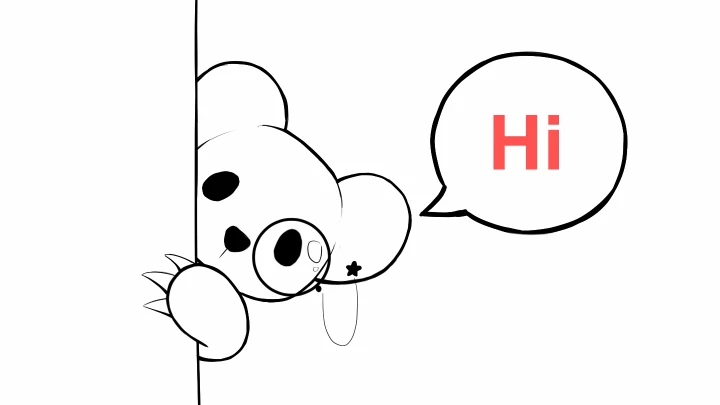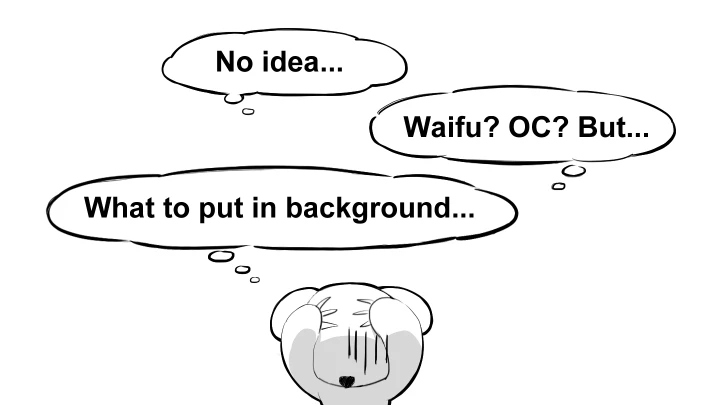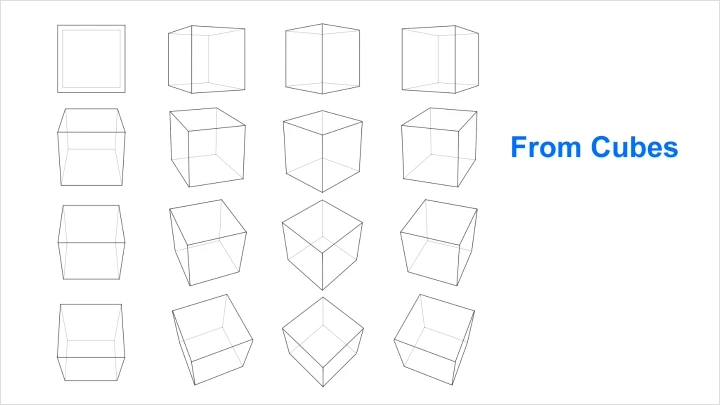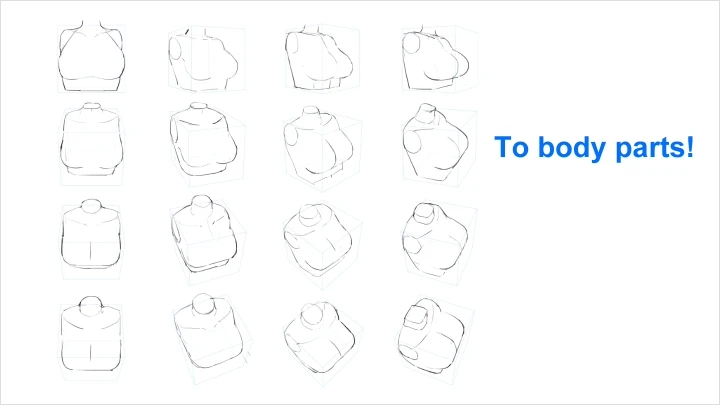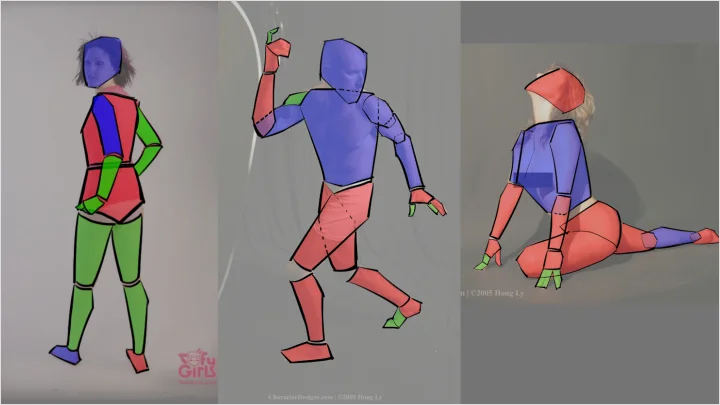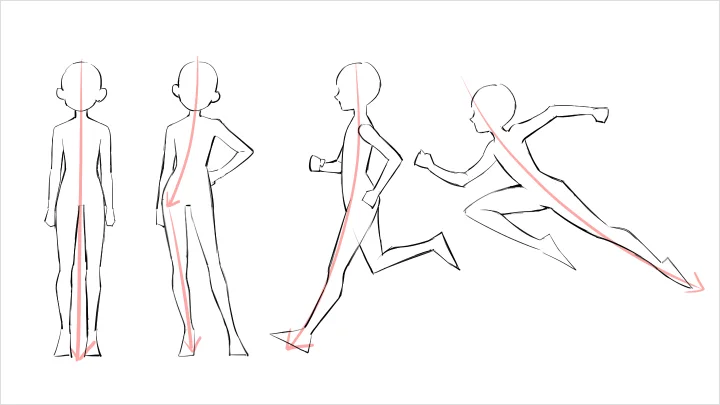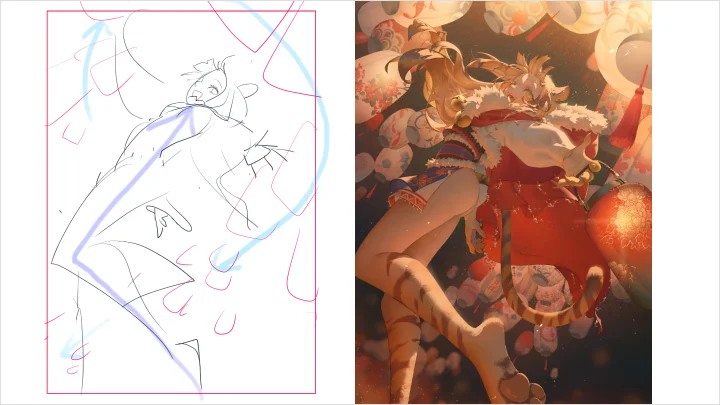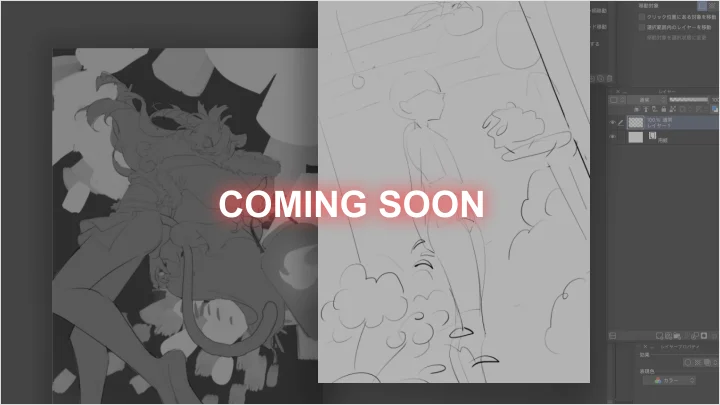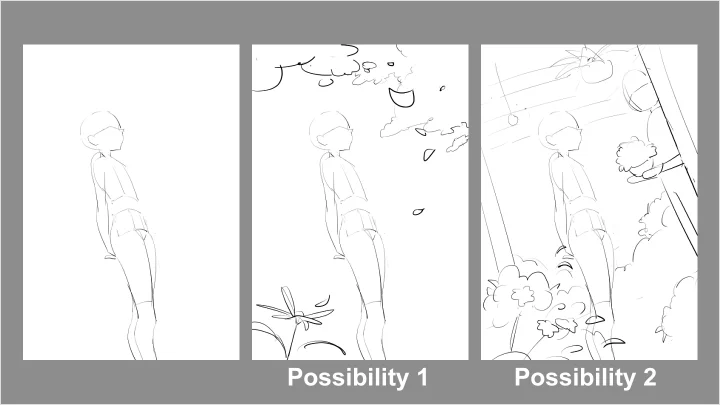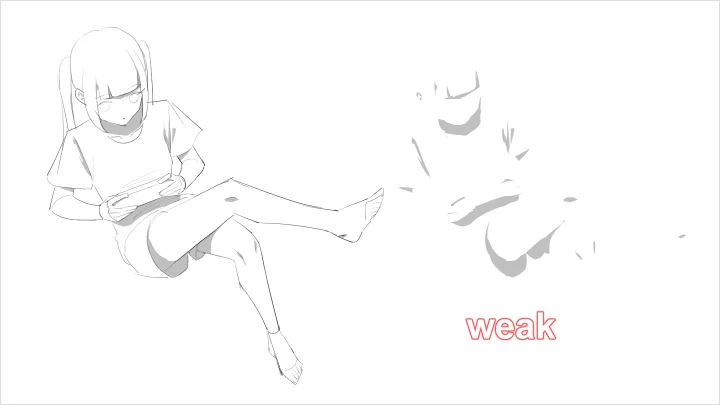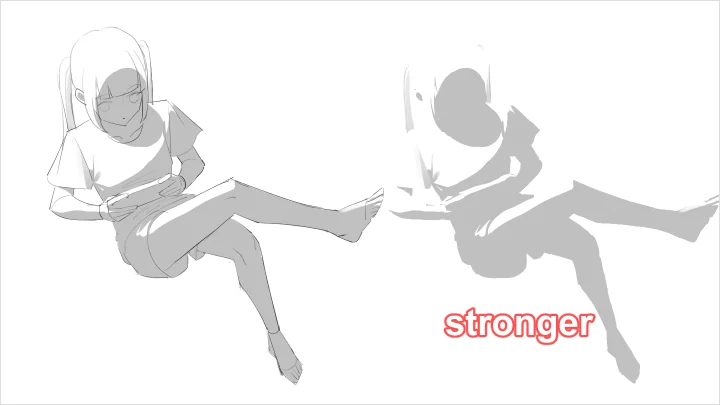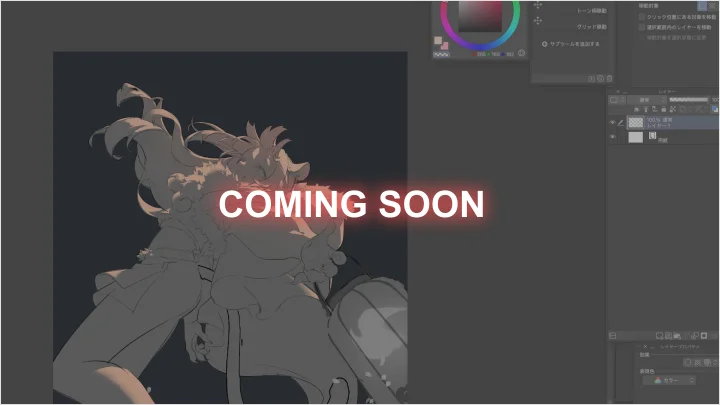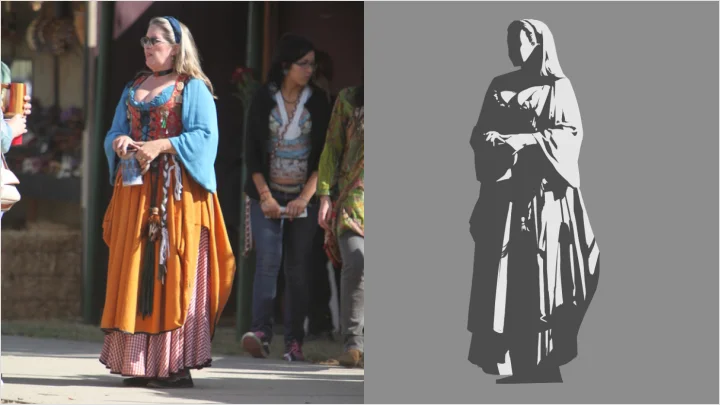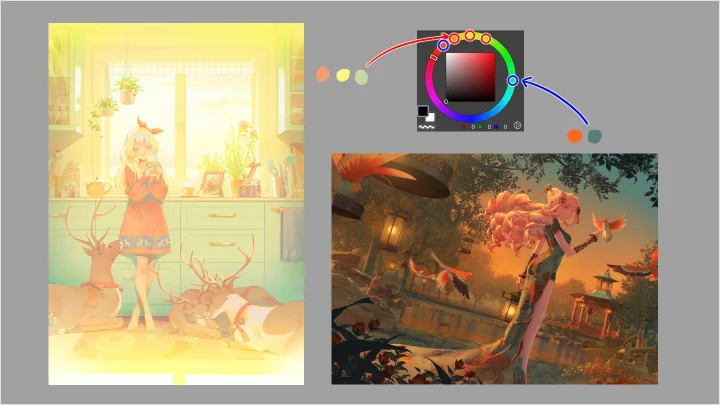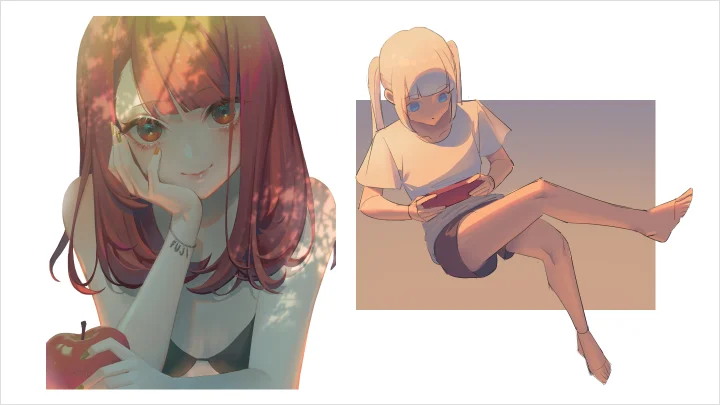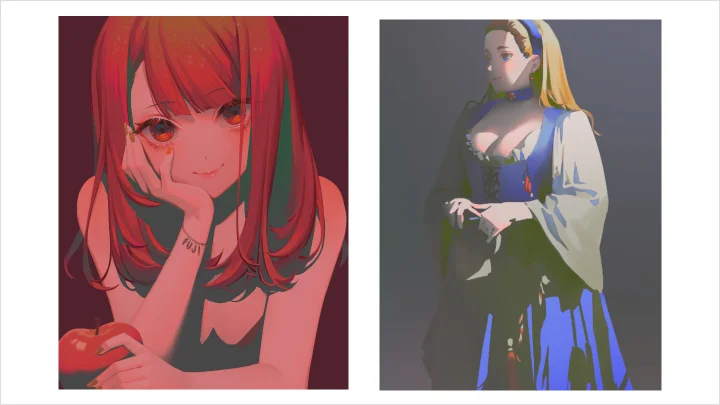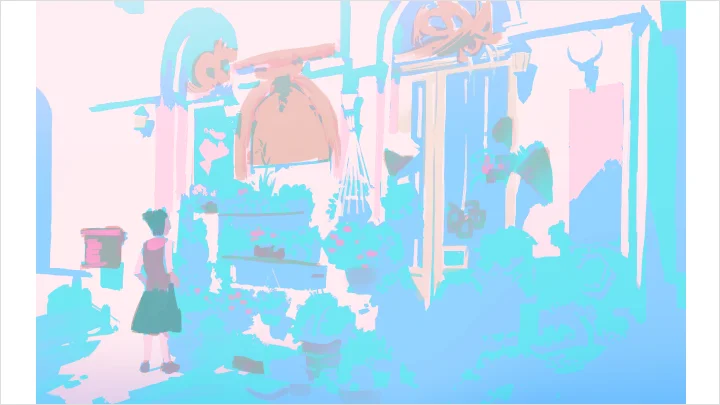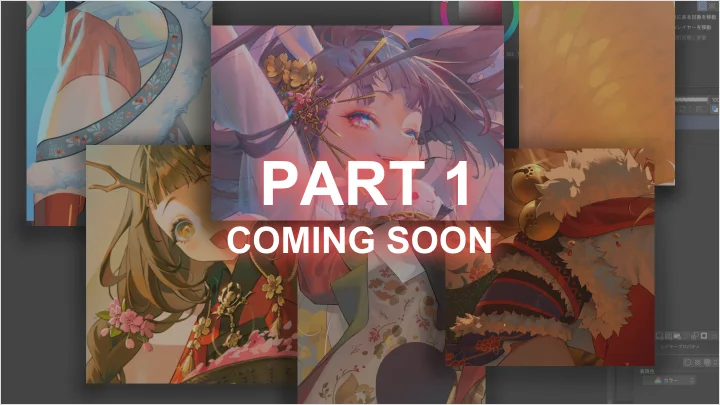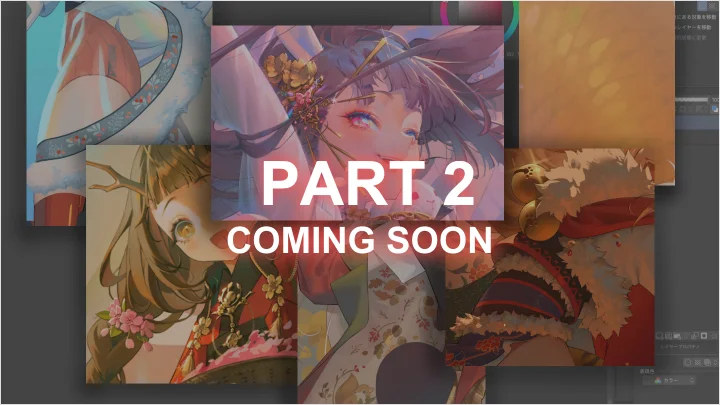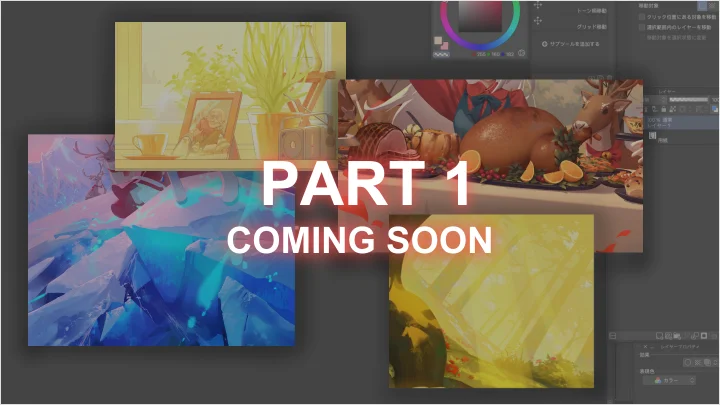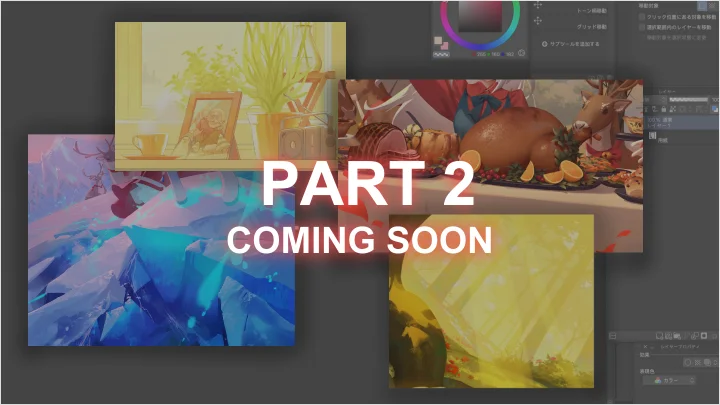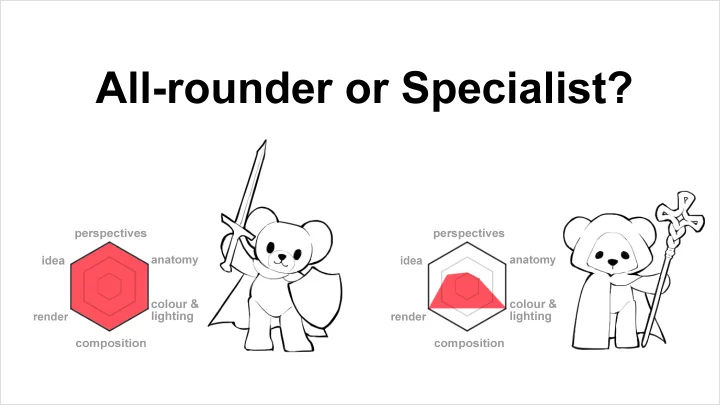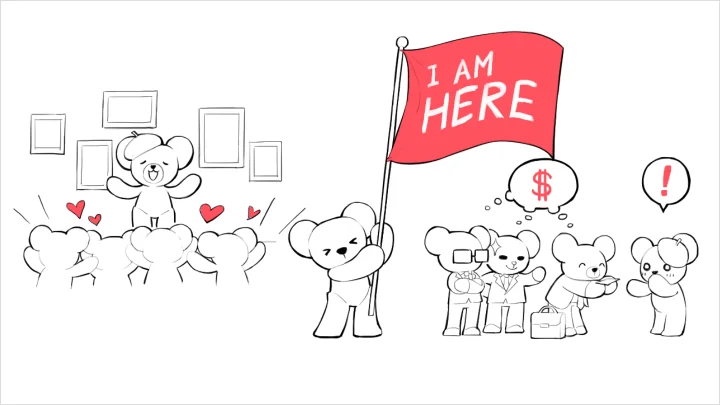Illustrator,deme Details
In-Depth Look
- SECTION 01
OT
01. Who Am I & What You Can Get from the Course- Self-introduction - My goals - What you can learn - Brief introduction to my workspace & why you don't need to worry about brushes
- SECTION 02
Idea Development
02. Ignite Your Passion & Brainstorm Ideas Together- Get motivated to learn and draw your own illustration! - Personal experience of getting super motivated by one character - Drawing idea inspiration & developing a rough plan brainstorming - Bringing personalities to the illustration from the planning stage
- SECTION 03
Anatomy: Basic Use of Lines & Shapes
03. Basic Perspectives and Human Body- Human proportions - Simple perspectives - Mastering blocks & drawing every body parts - Assembling poses with the body parts
04. Simplified Approach to Draw Human Body and Everything- Drawing with 4-, 5-, 6-sided polygons - Skill of simplifying 3D objects to simple 2D shapes - Drawing more efficiently by prioritizing silhouettes
05. Natural Poses and Dynamic Poses- Line of action - Understanding motion and force with logic - Techniques to amplify the expressiveness and powerfulness of poses
06. Class Exercises and Demonstration- Exercises, demo, tips, and caveats!
07. Applying Skills to Realize Your Ideas- Using skills learned on the final illustration - Focusing on drawing the main character only
- SECTION 04
Composition: Advanced Use of Lines & Shapes
08. Composition Skills That Enrich Our Drawings- Composition: Arranging shapes & drawing people's eyes to the focal point - Basics: Invisible line of visual direction, perspective lines, and geometric shapes - Add-Ons: Rhythm and contrast - Reasons why drafts look better than finished (detailed) work! - Examples of Application: Character details & background object arrangements
09. Applying Composition Skills Step by Step- Continue constructing the background of the final illustration - Having a clear idea of what to present & what's the focal point! - Thinking about what & how to arrange
10. How to Practice Composition: Class Exercises and Demonstration- Level 1: Existing pose, arrange objects with the line of visual direction - Level 2: Using frameworks/guidelines to arrange character & background - Level 3: Extract framework/lines of directions from illustrations & replace with other things
- SECTION 05
Lighting: Collaboration of Shapes & Value
11. Deep Dive into Lighting!- Why can it be (and better be) separated with colors? - All about shape & value - Value = light + shadow + mid tone + AO + reflected light - Shadow vs Cast shadow - Negative Space and Silhouette: Less is more! - Function of Lighting: How shape and value work hand in hand to show form! - Illustrating and analyzing with good & bad examples
12. Let There Be Light in Our Drawings!- Designing lighting in the final illustration - Shadow vs Cast shadow
13. Practice Designing Better Lighting Shapes- Level 1: Photo study with levels layer (human-focused) - Level 2: Photo study without adjustment layer (human-focused) - Level 3: Photo/drama/film screenshots study (human + background)
- SECTION 06
Color, Mood, and Storytelling
14. Basic Rules of Colors- My own very hopeful & encouraging story - Cool colors, warm colors, complementary colors, and analogous colors - Color palette & color ratio & mood - Value & contrast in bringing focus (visual direction) - Some examples
15. Storytelling through Color: Realistic Approach- 2 Approaches: Realistic vs Stylized - Realistic approach: By telling time of day, easily believable - Stylized approach: Relying more on the palette & its connotation - Mood & time of day & storytelling - Ambient light & bounce light & AO - Illustration/painting examples
16. Storytelling through Color: Stylized Approach- Emphasizing more chosen color palettes & less local values - Making use of connotations or emotions related to a certain color (mostly subjective) - Playing wildly with color! - Color saturation & tips to enrich color - Using past work to illustrate how I did
17. Class Exercises and Demonstration- Class exercises for both approaches in different levels of difficulties
18. Color with Mood in Actual Practice (1)- Final Illustration: Base color blend with lighting to create mood
19. Color with Mood in Actual Practice (2)- Final Illustration: Base color blend with lighting to create mood
- SECTION 07
Render and Finish Up with Finesse
20. Rendering: Main Character (1)- Finishing up the final illustration! - Collecting references beforehand & along the way - Sharing experience of drawing each part
21. Rendering: Main Character (2)- Continue rendering details - Checking values along the way - Creating/enhancing space
22. Rendering: Background (1)- Working on the background of final illustration - Tips along the way
23. Rendering: Background (2)- Working on the background of final illustration - Tips along the way
24. Final Adjustments- Overall final adjustments of the final illustration
- SECTION 08
Wrap Up: Advice for Future Growth
25. Brand around Your Personality- All-rounder myth - Prioritizing skills that help to fulfill your initial desire when you start drawing - The end of this class is just the beginning of your self-learning journey - Using line/shape/H-S-V, analyze every artist and learn from them - Deliberate practicing vs Mindless copying - Setting the difficulty for practice - Making your own sustainable & workable study plan - Healthy balance between practicing & drawing!
26. How to Face Future Challenges as an Artists- Self promotion on social media (hold your flag high up and attract the similar minds!) - Career - AI - Buddhist story of carrying a boat
